Introduction.
Starting an Airbnb business in Nigeria can be a great way to earn extra income and even build a full-time business that fits your lifestyle.
I’m excited to share my experience and tips on how you can get started, especially if you’re new to the world of short-term rentals.
This guide breaks down each step of the process—from setting up your property to managing guests—so you can feel confident as you take the plunge.
Why an Airbnb Business in Nigeria Is Worth Considering
Nigeria’s tourism and business travel sectors are growing, and travellers are looking for more than just a hotel room when they visit.
Airbnb gives you the chance to showcase Nigeria’s rich culture, beautiful landscapes, and vibrant cities to guests from all over the world.
According to a report on Statista, global demand for short-term rentals has been on the rise, and Nigeria is no exception.
With a growing middle class and an increase in both domestic and international tourism, there’s never been a better time to start your own Airbnb business here.
How do I start an Airbnb Business In Nigeria?
Before listing your property on Airbnb, it’s important to take a few foundational steps:
1. Research the Market
I started by looking into which areas in Nigeria attract the most visitors. Cities like Lagos, Abuja, and Port Harcourt tend to have higher demand due to business centers, tourist attractions, and government offices.
Understanding the local market can help you set competitive prices and identify the best location for your property.
- Local Attractions: Think about what might draw people to your area. Are there local festivals, cultural landmarks, or nature spots nearby?
- Competition: Check out existing Airbnb listings in your area. Note their pricing, reviews, and unique selling points.
2. Choose the Right Property
Not every property works well as an Airbnb. I learned that factors like location, safety, and accessibility are key. Whether you own a house or are thinking about renting one to sublet on Airbnb (always check your lease agreement and local laws first), make sure the space is comfortable and has the amenities guests expect.
- Safety and Security: Ensure that your property has secure locks, proper lighting, and clear emergency exits.
- Amenities: Think about what guests need. Comfortable beds, clean bathrooms, fast Wi-Fi, and a functional kitchen are a few essentials that can help you stand out.
3. Understand Local Regulations
Local laws can sometimes be a bit tricky. It’s important to check with your local government about any regulations concerning short-term rentals.
Some cities require permits or registration, so I made sure to do my homework before listing my property.
4. Setting Up Your Space
Once you have your property, the next step is to prepare it for guests. I found that creating a welcoming and comfortable environment makes a big difference in the quality of reviews you get.
Clean and Declutter
A clean space is the foundation of a good guest experience. I hired professional cleaners for the initial setup and then created a cleaning schedule to ensure the property stays spotless.
Invest in Good Photography
Photos are the first thing potential guests see. I spent some time taking high-quality pictures or even hiring a local photographer to capture the best angles of my property. Good lighting and clear images can significantly boost your booking rate.
Add Personal Touches
Small details go a long way. Whether it’s a welcome basket, local art on the walls, or a guidebook with recommendations for local restaurants and attractions, these touches help guests feel at home and can lead to glowing reviews.
5. Listing Your Property on Airbnb
Creating an effective listing is like writing an advertisement for your property. I aimed to make my listing clear, honest, and appealing.
Airbnb is free to sign up and it’s free to list your property. Only after you receive a booking will you need to pay Airbnb hosting fees – generally 3% of what you initially charge as your listing fee.
To list your property on Airbnb, you will need to create an account. This will allow you to create a listing for your property, manage bookings, and communicate with guests.
You will also need to provide information about your property, including the location, the number of guests it can accommodate, and pricing.
Here are some key fields you should look out for when listing your property on Airbnb.
1. Home Type.
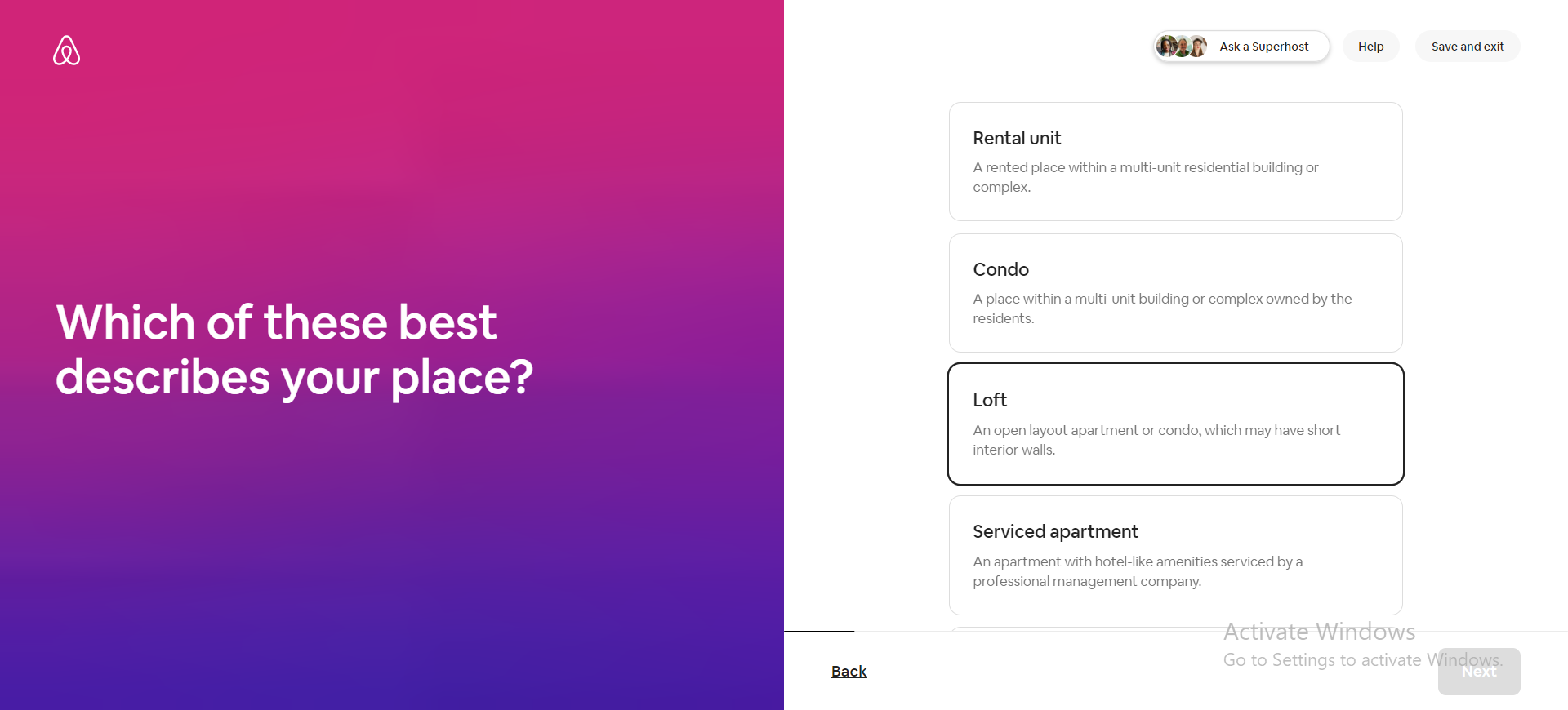
Select what kind of property you’d like to advertise. There is a whole range of options you can select from the ‘Other’ dropdown if your place doesn’t fit into the common categories.
2. Room Type.
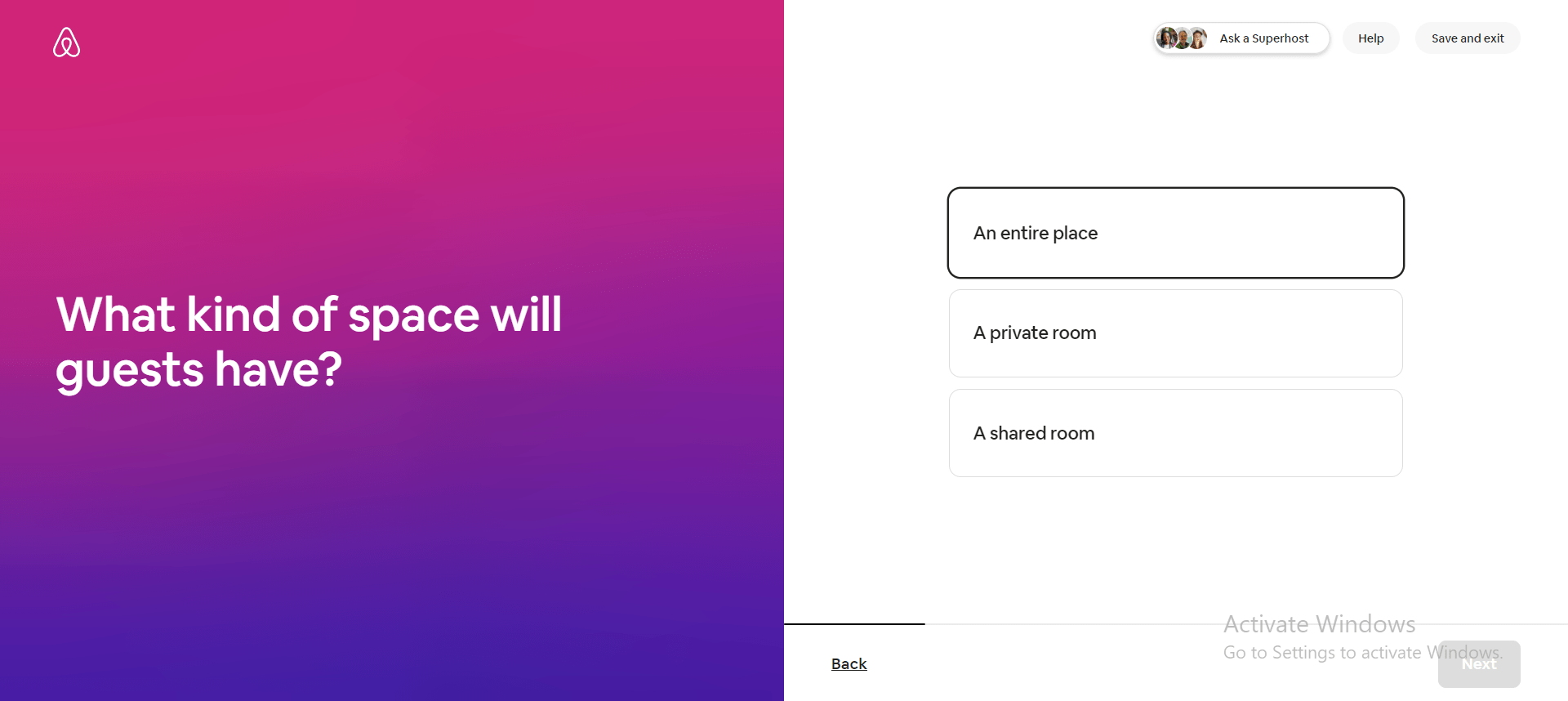
For vacation rentals or serviced apartments, you will most likely select “Entire home/Apartment”.
3. Accommodates.
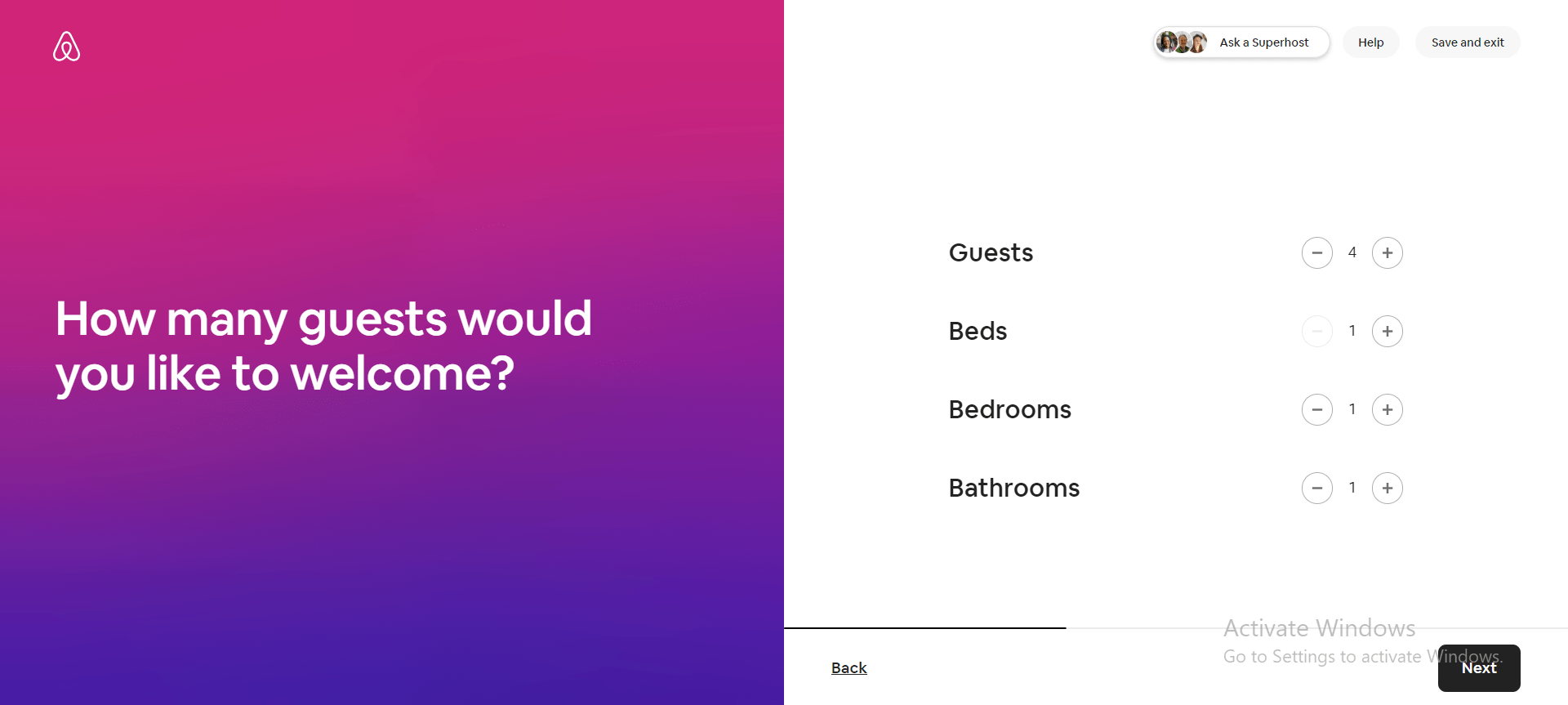
Enter the maximum number of people that your space can comfortably accommodate. This doesn’t mean you’ll only be visible to the maximum number but it is good to be flexible (Airbnb is like that).
4. City.
Doesn’t have to be a city, just wherever your place is.
5. Calendar.
You’ll be asked to choose between three options of how available your property is: “Always”, “Sometimes” and “One Time”.
Choose “Always” if you want your place to be listed indefinitely, “Sometimes” if you have specific dates you’d like to advertise, and “One Time” if you only have one period of time available.
6. Pricing.
Airbnb will suggest a price for your listing based on their algorithm. If it’s the first time you’re listing, Airbnb will suggest pricing lower to entice guests, who will then leave reviews and build your reputation.
You can also set weekly and monthly prices if you are planning to have guests at your vacation rental for longer.
An Airbnb-certified channel manager makes it even easier by automatically synchronising your availability and rates with Airbnb without making an account – all you need to do is opt-in with one click!
7. Overview.
This is the title and summary that potential guests will see when browsing. You only have 35 characters to make an impression in the title so use descriptive and appealing adjectives to entice guests.
For the summary, you have 250 characters, so really try and sell your place as succinctly as you can. Feel free to use bullet points!
8. Photos.
The optimal number of images for an Airbnb listing is 10 but you can add more if you like, as long as you make sure they are high resolution (around 1024 x 683px).
Show a varied selection and showcase the best angles and rooms. Airbnb offer free professional photography sessions for properties that match certain criteria so make the most of the opportunity if you can!
9. Amenities & Location.
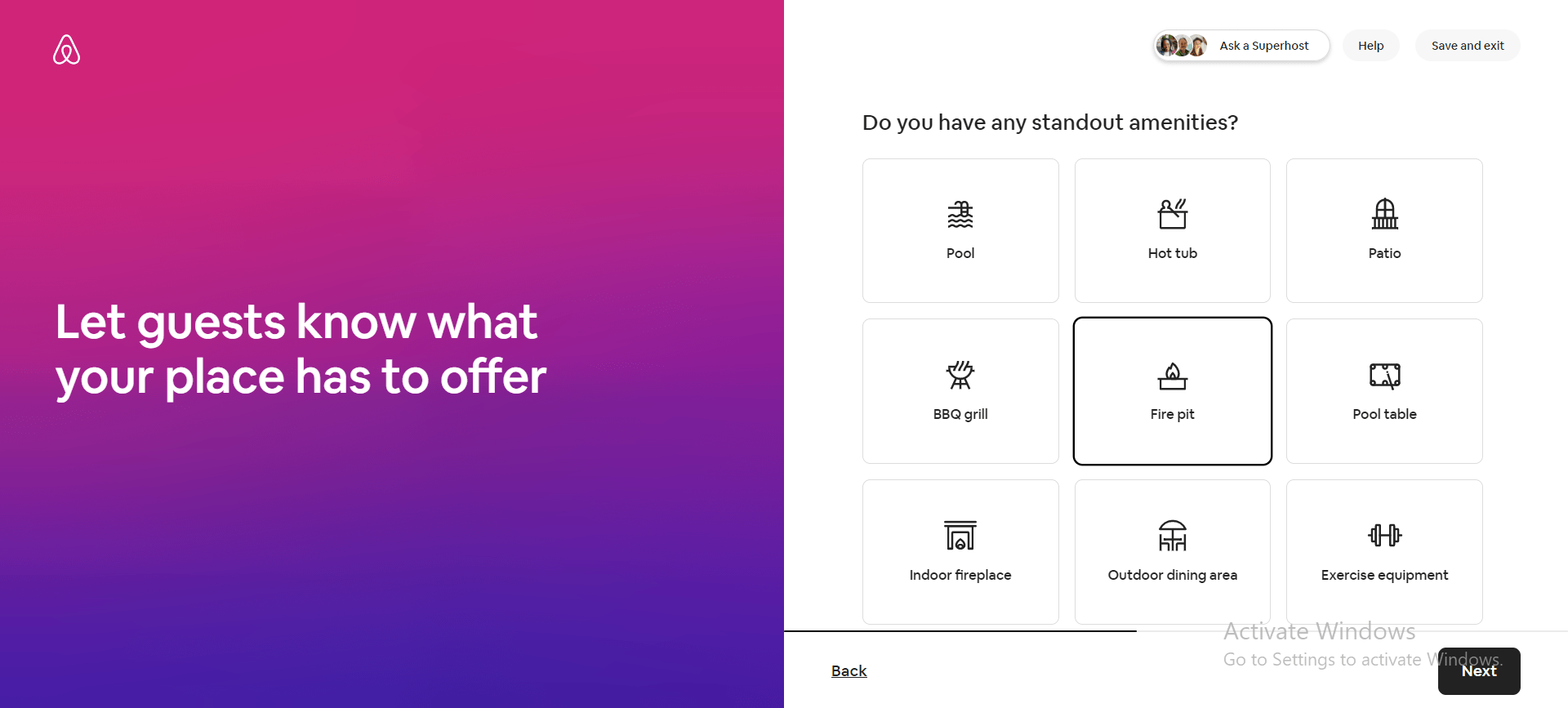
Select all amenities that you have, from the essentials to the extras, so guests have a complete picture.
Then, finish off your listing by inserting the address of your apartment or house. Don’t worry, the exact location won’t be revealed to guests until their booking is confirmed.
6. Promote Your Business.
Now that you have listed your Business on Airbnb, it’s time to start telling people about your new business.
Mind you this section is not compulsory because Airbnb already has an algorithm that recommends your listing to potential buyers on the platform.
To attract guests to your Airbnb property, you will need to market it effectively. This includes creating a detailed listing with high-quality photos and descriptions, responding promptly to guest inquiries, and maintaining positive guest reviews.
In the same plight, you do not have to wait for its algorithm to recommend your product because many people are fighting for that placement. Here are some strategies that can help you get ahead.
1. Use Facebook.
Facebook is the biggest social networking site. It is still one of the most used sites even though there are many alternatives available.
Everyone knows how to use it. not everyone understands how it can be used to grow a business.
When there are a huge number of people present, it is automatically an amazing opportunity for marketers to promote their business.
You can leverage the power of Facebook to promote your Airbnb business such as using a Facebook page to advertise your Airbnb Listing.
I wrote a comprehensive guide on this blog on how you can leverage Facebook as a means of promoting your business, check out the link to the article to learn more.
2. Share on Twitter.
If you’re looking to develop your brand and give it the exposure it needs to grow, you need to be on Twitter.
Twitter has more than 330 million active monthly users, which can be seen as a huge market in the world.
Twitter, like Facebook, can also be used to leverage your business.
All that is needed to be done is to create a Twitter profile, customize tweets to suit your brand, reach out to influencers and finally start creating paid ad campaigns.
I wrote a comprehensive guide on how you can grow a business using Twitter. Check out the link to the article below to learn more.
3. Blog about your new Business.
Beyond your company website, a blog is a fantastic tool to educate your audience about your business.
While a website might be more practical in content and straightforward in tone, a blog offers more flexibility to connect with customers and to share updates in a way that shows who you are, and what problem you intend to solve.
A chief reason every company needs a blog is to increase its visibility. Put simply, the more blog content you create, the more opportunities you’ll have to show up in search engines and drive organic traffic to your website.
Blogging allows you to promote your business for free. I wrote a comprehensive guide on how you can start blogging around your business. Check out the link to the article below to learn more.
4. Use TikTok.
TikTok is currently the fastest-growing social media platform if not the most used social media platform in the world.
It also creates an atmosphere to promote your business without any hassle. TikTok is available in 150 countries and 75 languages, has been downloaded over 2.6 billion times worldwide; and has over 1 Billion active users on its platform.
It is the world’s leading destination for short-form video entertainment that consists of a variety of full-screen vertical video content pioneering the trend of video consumption around the world.
I wrote a comprehensive article on this blog on how you can leverage TikTok to promote your business. Check out the link to the article to learn more.
5. Instagram is a better alternative.
Instagram over the past few years has enabled businesses of all sizes in every industry to understand the importance of mobile marketing to their respective businesses.
Instagram now has over one billion active monthly users and 700 million daily active users. Of these, 400 million users check out Instagram stories regularly.
I wrote a comprehensive guide on how you can leverage your business on Instagram for growth. Check out the link to the article to learn more.
7. Host Your Guests.
Once you have guests booked, it is important to be a good host. This includes providing clear instructions for check-in and check-out, being available to answer questions or address concerns, and providing a clean and comfortable environment for your guests.
8. Manage Your Business.
To build a successful Airbnb business, it is important to manage your business effectively. This includes keeping accurate records of your income and expenses, managing your calendar to ensure that your property is available for bookings, and maintaining a high level of customer service to ensure that your guests have a positive experience.
9. Ensure a positive guest experience.
To ensure that your guests have a positive experience, you should provide clear instructions on how to access your property, be available to answer any questions or concerns they may have, and provide a clean and comfortable space. You should also be prepared to handle any issues that may arise during your stay.
Tips for Success
Based on my own experiences and research, here are a few extra tips that might help you succeed in your Airbnb venture:
- Offer Local Experiences: Consider partnering with local tour guides or restaurants to offer discounts or special experiences for your guests.
- Be Flexible: Try to accommodate reasonable requests from guests. Small gestures, like offering an early check-in or late check-out, can lead to better reviews.
- Keep Learning: The hospitality industry is always changing. Follow blogs, join local host groups, and attend workshops to stay updated on best practices.
- Embrace Technology: Use management tools to streamline operations. Tools like calendar management, guest communication apps, and automated pricing tools can save you time.
- Set Clear House Rules: To avoid any misunderstandings, clearly state what is and isn’t allowed in your property. This helps set expectations for both you and your guests.
Common Mistakes to Avoid
I learned the hard way that some common mistakes can hurt your business. Here are a few pitfalls to watch out for:
- Underestimating Costs: Many first-time hosts don’t factor in all the expenses like cleaning fees, repairs, and occasional price drops during low seasons. It’s smart to budget for these.
- Ignoring Guest Feedback: Sometimes, feedback can be tough to hear, but it’s invaluable. I always took the time to understand what guests were saying and made improvements where possible.
- Overcomplicating the Process: It’s easy to get overwhelmed by all the details. Focus on the basics: a clean space, clear communication, and a fair price.
- Not Protecting Yourself: I made sure to get the proper insurance and understand the terms of Airbnb’s host guarantee. This protects you in case of any accidents or property damage.



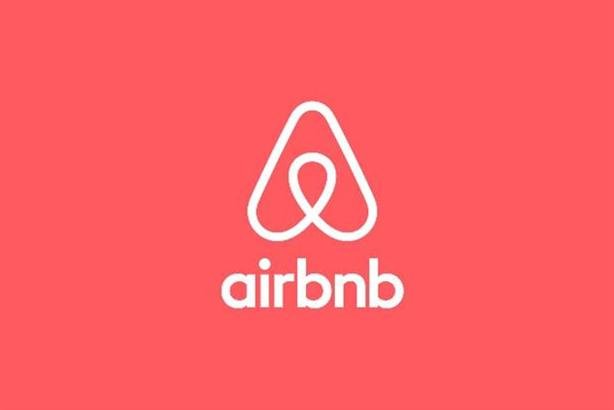


GIPHY App Key not set. Please check settings